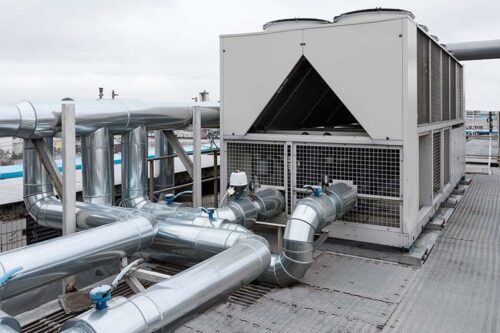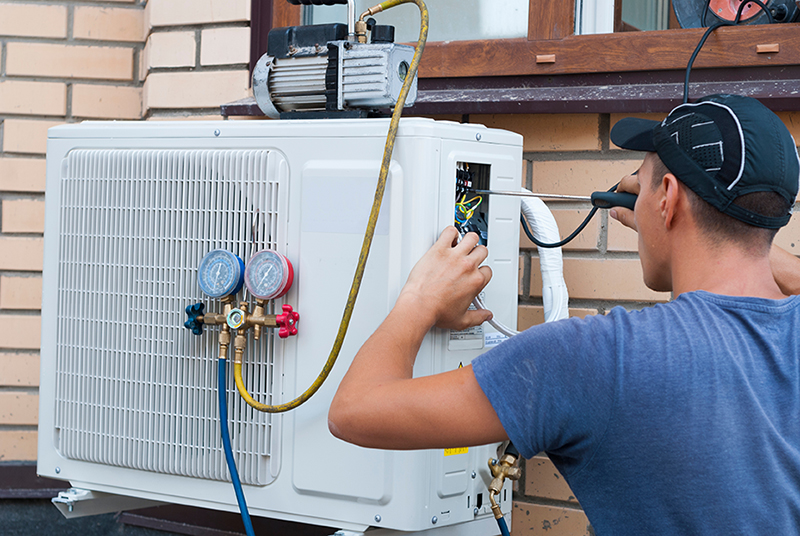Affordable Furnace Installation For Warm Homes In Your Area
Affordable Furnace Installation For Warm Homes In Your Area
Blog Article
Your Guide to Choosing the Right HVAC System for Your Demands
Selecting an ideal a/c system is an essential choice that can substantially affect convenience and energy efficiency in your home. Numerous elements need to be considered, including the dimension of your home, local climate problems, and certain heating or cooling down needs. Additionally, understanding the various types of systems offered and their power scores can aid assist your choice. By evaluating these elements very carefully, you can prevent common risks. What vital considerations should you focus on to guarantee your financial investment meets both long-term and instant needs?
Understanding HVAC System Types
When picking a cooling and heating system, it is important to comprehend the different kinds readily available to satisfy your specific demands. The primary groups of HVAC systems consist of main air conditioning systems, ductless mini-split systems, heatpump, and furnace systems.
Air conditioning systems are developed to cool multiple areas making use of ductwork to distribute conditioned air. They are perfect for larger homes requiring consistent temperature control. Ductless mini-split systems, on the various other hand, supply versatility and efficiency, as they enable for zoning capabilities, enabling individual area temperature regulation without the requirement for ductwork.
Heatpump operate by transferring heat as opposed to generating it, making them an energy-efficient option for both cooling and heating. They are especially reliable in modest environments. Conversely, heating system systems make use of combustion to produce heat, utilizing either oil, gas, or electrical power. They are favored in chillier regions where home heating needs are substantial.
Each system has distinctive advantages and considerations, including installation needs, maintenance, and overall expenses. Recognizing these kinds will certainly assist home owners make educated decisions based upon their certain needs, environment, and budget constraints, eventually ensuring ideal convenience and efficiency.
Reviewing Energy Efficiency
Energy performance is a vital variable in the option of an A/c system, as it straight influences both energy costs and ecological sustainability. The Seasonal Energy Efficiency Proportion (SEER) and the Heating Seasonal Efficiency Element (HSPF) are vital indicators for air conditioning systems, representing their effectiveness over a common cooling and home heating period, respectively.
Furthermore, search for systems that have made the ENERGY STAR tag. This certification represents that the equipment fulfills stringent energy effectiveness standards established by the united state Environmental Security Company. Think about the system's variable-speed technology, which enables more reliable procedure by adjusting the result to match demand, additionally boosting energy financial savings.
In addition, proper insulation and duct securing can dramatically influence the system's total effectiveness. In recap, selecting an energy-efficient cooling and heating system not just reduces your energy costs but additionally adds to a much more sustainable setting, making it a necessary consideration in your acquiring process.
Assessing System Dimension
Picking the ideal dimension for a heating and cooling system is vital to making sure optimal efficiency and efficiency. An undersized system might battle to keep preferred temperatures, causing raised wear and tear, greater power consumption, and lessened convenience. On the other hand, a large system can result in quick biking, which not only causes inefficiencies yet likewise influences moisture control and air high quality.
To assess the ideal sizing, it is vital to carry out a lots estimation, which thinks about factors such as the square video of the area, insulation levels, window sizes, and neighborhood environment problems - furnace repair. This estimation assists go to this website figure out the British Thermal Systems (BTU) required for home heating and cooling. In addition, it is important to represent specific demands, such as the variety of residents and the presence of heat-generating devices

Installment Prices and Budget
A detailed understanding of setup costs is crucial for house owners and organizations taking into consideration a brand-new heating and cooling system. The overall cost of installment can vary widely based upon numerous elements, including the kind of system, the complexity of setup, and the location of the property. Usually, setup expenses can vary from $3,000 to $10,000, depending on the system's dimension and performance.
When budgeting for an a/c system, it is essential to take into consideration not only the initial installation costs however also any kind of additional expenses that may occur, such as ductwork modifications, electrical upgrades, or authorizations. Additionally, it is advisable to get several quotes from certified HVAC service providers to make sure competitive rates.
House owners need to additionally factor in the possible long-lasting financial savings connected with energy-efficient check these guys out systems. While the upfront prices may be greater, energy-efficient models can bring about significant financial savings on utility costs with time.

Maintenance and Long Life Considerations

Correct maintenance consists of regular examinations, filter replacements, and cleansing of air ducts and coils (hvac). Neglecting these tasks can bring about lowered effectiveness, enhanced energy prices, and premature system failing. House owners should likewise think about the availability of service agreements, which commonly offer scheduled upkeep and concern solution, ensuring that the system remains in peak problem
Longevity varies by system kind; for example, well-kept central air systems can last 15 to 20 years, while warm pumps might have a life expectancy of 10 to 15 years. Selecting a system with a solid reputation for reliability, along with buying regular upkeep, can dramatically boost the system's durability. Additionally, going with higher-efficiency versions may result in long-lasting cost savings on energy bills, stabilizing the preliminary investment in time.
Conclusion
In verdict, selecting a proper HVAC system requires careful consideration of numerous factors, including system kinds, energy effectiveness, and dimension. Ultimately, a knowledgeable choice will improve convenience and efficiency in domestic settings while making the most of power redirected here financial savings.
Selecting an appropriate Cooling and heating system is a critical choice that can significantly influence comfort and energy effectiveness in your home.Power performance is a critical element in the choice of a Cooling and heating system, as it directly impacts both utility expenses and environmental sustainability. The Seasonal Power Effectiveness Proportion (SEER) and the Home Heating Seasonal Efficiency Variable (HSPF) are vital indicators for air conditioning systems, representing their effectiveness over a common cooling and home heating season, respectively. Choosing a system with a solid credibility for dependability, along with investing in regular maintenance, can substantially boost the system's longevity.In conclusion, selecting an appropriate HVAC system requires careful factor to consider of different variables, including system types, energy performance, and dimension.
Report this page